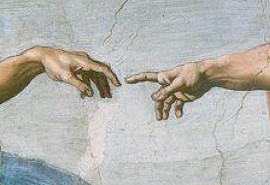
AS I PONDER man’s place in God’s creation through the lens of the Book of Job, several key passages stand out to me. In Job 7:17-18, Job asks, “What is mankind that you make so much of them, that you give them so much attention, that you examine them every morning and test them every moment?” Here, Job marvels at the significance God places on humanity, even as he struggles to understand his own suffering.
Later, in Job 10:8-12, Job acknowledges God’s intimate involvement in forming him: “Your hands shaped me and made me. Will you now turn and destroy me? Remember that you molded me like clay. Will you now turn me to dust again? Did you not pour me out like milk and curdle me like cheese, clothe me with skin and flesh and knit me together with bones and sinews? You gave me life and showed me kindness, and in your providence watched over my spirit.” These verses highlight the intricacy and intentionality with which God creates each human being.
In chapter 14, Job reflects on the fragility and brevity of human life compared to the enduring nature of God. “Mortals, born of woman, are of few days and full of trouble. They spring up like flowers and wither away; like fleeting shadows, they do not endure.” (Job 14:1-2) Yet even in this transience, Job recognizes that man’s days are determined by God: “A person’s days are determined; you have decreed the number of his months and have set limits he cannot exceed.” (Job 14:5)
Perhaps one of the most striking passages on man’s place in creation comes in God’s response to Job. In chapters 38-41, God questions Job about the mysteries of the natural world, from the foundations of the earth to the behavior of animals. The implied question is, “Where were you when I created all this?” It’s a humbling reminder of man’s finite understanding compared to God’s infinite wisdom.
Yet, even as God asserts his sovereignty, he also affirms the value he places on humanity. In Job 33:4, Elihu declares, “The Spirit of God has made me; the breath of the Almighty gives me life.” In the conclusion of the book, we see God restore Job’s fortunes, a testament to his care for his servant.
So, as with other scriptural concepts, we have seemingly conflicting facts and sentiments: (1) We are puny among the mighty works of God’s creation. Yet, (2) he shows us that he made each of us individually and personally and has a place and a plan for each—although, as with Job, he doesn’t always spell it out for us. Both of these points should strengthen and encourage each of us—we who have been “called according to his purpose” (Romans 8:28).